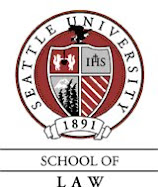If you are planning to work in a different city (either after graduation or over the summer) obtaining reciprocity through a law school in that area can be extremely helpful in your job search. Reciprocity services allow outside students access to certain (limited) resources in a school’s Career Services office, usually including access (in some form) to their job postings.
However, there are a few things to know about reciprocity before you begin the process:
1. The Request: Reciprocity can only be gained by the requesting school’s Career Services office sending a request for reciprocity on behalf of their student. Requests coming directly from students will not be granted. So be sure to contact CPD for all reciprocity requests. We will send the request to the school(s) in question, and will cc you. After the request has been processed, the school in question will be able to contact you directly with the appropriate information.
2. Limitations: Each school has their own unique reciprocity policy. It is very important that you research each school and its offerings before making the request (the reciprocity policy can usually be found on the school’s Career Services site). If they are not offering the kind of access that you were hoping for, it is really not worth making the request – especially since many schools have a one-for-one policy (meaning that for every student of theirs that is granted reciprocity with SU, they will grant reciprocity to an SU student), and your request could be taking a spot away from a student who might be able to make use of their services. Not all schools will allow remote access to their job banks. Most will not offer career counseling services. Some will limit reciprocity to 3Ls and alums only. Some will charge a fee. If multiple schools exist within a certain geographic area, they will
often allow outside students to obtain reciprocity at
only one school at a time. Again, be sure to read their individual policy before deciding to make the request.
3. Black-out Periods: Every school will typically have a black-out on reciprocity services during the fall recruitment period, and often again in the spring. The dates will range from school to school, so be sure to review the school’s reciprocity policy to determine when you will have access. Requests made during the blackout period will not be processed, so you will want to hold off until that school’s black-out period has lifted.
4. Limits on Requests: Each Seattle University student is limited to making no more than 10 reciprocity requests per academic year. Please take this into consideration as you are deciding which schools to approach.
After you have reviewed the reciprocity of the schools you are interested in contacting, just send a list of the schools to us at lawcareers@seattleu.edu, and we will begin making the requests.
skip to main |
skip to sidebar

A resource for students and alumni featuring news, events, and career planning information

CPD Webpage
Visit our webpage for additional resources and information about our services.
Symplicity
Preparing Materials
Review the Preparing Materials section of our website for helpful hints on:
- Resumes
- Cover Letters
- Other Materials
- Resumes
- Cover Letters
- Other Materials
CPD Calendar
Upcoming CPD events can be found on our calendar (select CPD from the drop-down menu).
Access to Justice Institute
Resources
Blog Archive
Contributors
EDUCATING POWERFUL ADVOCATES FOR JUSTICE